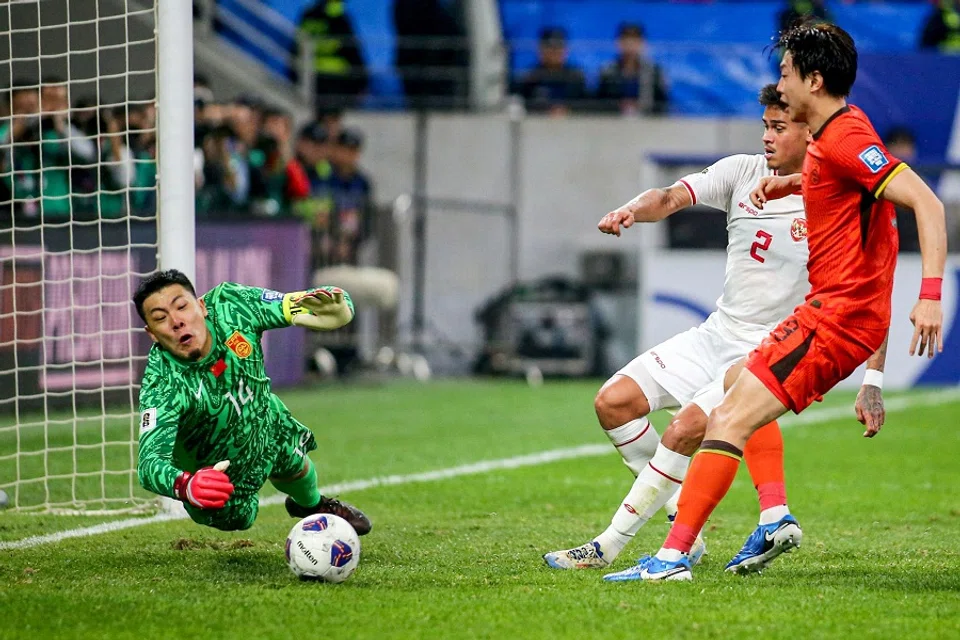Majoring in football: Chinese universities revamp curricula for national goals
Lianhe Zaobao journalist Li Kang notes that Chinese universities are changing their programme offerings to align with the country’s development path, expanding majors in technology and sports while reducing humanities and business programmes.

A year after enrolling in a university in central China, Li Yuting (21) decided to “abandon business for engineering”. Last September, she changed her major from financial management to communications engineering.
A month later, the university revamped its humanities programme, eliminating more than ten humanities and social sciences research institutions from the school.
Li told Lianhe Zaobao that although the school did not remove any business programmes, she still felt relieved about her decision, adding, “The country is vigorously developing in the direction of technology. We must respond to the call if we want to secure a job.”
Chinese universities had added 1,673 new programmes while removing 1,670 — a historical high.
Restructuring university programmes
The adjustment of university programmes nationwide significantly accelerated after the Chinese Ministry of Education released its latest higher education reform plan in 2023. Official data showed that last year, Chinese universities had added 1,673 new programmes while removing 1,670 — a historical high.
Against the backdrop of China’s intense tech development and goal of becoming a strong technological nation, this round of adjustments involved the largest number of engineering programmes, totalling 1,322 or 39% of the total. Programmes in artificial intelligence, smart manufacturing and data science — all of which align with national needs — saw the most growth in recent years. In contrast, programmes in humanities and business, which are less connected to technology, were heavily cut.
Lianhe Zaobao’s review of university programme closures over the past year found that discontinued humanities and business programmes primarily encompassed literature, management and the arts, and these varied based on each institution’s existing curriculum.

Science and engineering as well as vocational universities are more likely to remove humanities and business programmes. For instance, the University of Science and Technology of China announced the removal of English language, communication and archaeology programmes last October. Meanwhile, Dalian University of Technology announced the closure of its Institute of Contemporary World Economics and Politics in July this year; and Nanjing University of Aeronautics and Astronautics announced the removal of its School of Humanities and Social Sciences in the same month.
... among the universities that announced their 2025 graduate admissions in October, at least 20 have suspended admissions for master’s programmes in humanities and social science fields such as literature, linguistics, management and law.
The reduction in humanities and business programmes at the undergraduate level has also trickled to the master’s level. According to statistics from Chinese higher education research institution MyCOS, among the universities that announced their 2025 graduate admissions in October, at least 20 have suspended admissions for master’s programmes in humanities and social science fields such as literature, linguistics, management and law.
Global trend of decline in humanities and social science majors
Deng Xize, a professor at the School of International Relations at Sichuan University, told Lianhe Zaobao that the decline of humanities programmes is a global trend and not unique to China. Western universities have been cutting humanities programmes for many years.
According to data from the US’s National Center for Education Statistics, the number of humanities programmes decreased by 10% in the 2020-2021 academic year compared with ten years ago, with English literature experiencing a sharp decline of 32%. In the same period, computer and information sciences programmes increased by 144%, while engineering and biomedical programmes grew by 65% and 46% respectively.
The number of humanities students at top US universities have also decreased. A Forbes report from November 2023 noted that in 2022, only 7% of Harvard University’s freshmen planned to major in humanities, down from 20% in 2012 and 30% in the 1970s. The number of humanities students at Stanford University also dropped by 14% over the past decade.
Deng commented that from the perspective of human knowledge production, the effective knowledge generated by the humanities is decreasing. He added, “This is generally the case worldwide, with Western humanities ‘recycling old ideas’. There is also involution, whereby mediocrity is being increasingly refined. Of course, the performance of humanities programmes varies across countries.”
“If schools are too slow in making changes, just imagine how many unfortunate students will be delayed because their majors are no longer in line with the times,” he said. — Ye Xiaoyang, an economist

Economist Ye Xiaoyang, who spent several years researching China’s college entrance exam application process, stated when interviewed that on the one hand, university programmes in China are partly decided from a top-down approach, serving the broader national socio-economic development; while on the other hand, it also involves a bottom-up early warning mechanism that forces universities to adjust programmes based on graduate employment rates.
However, he pointed out that the latter is a long drawn-out transmission system, resulting in “very sluggish responses” from Chinese universities.
Ye described the process of university programme adjustments in China as a “black box”. By the time information becomes public, the changes have already been implemented. Universities have consistently failed to disclose the specific reasons for these adjustments.
Ye felt that in a well-functioning higher education system, bottom-up forces should play a greater role in prompting schools to adjust their programmes. “If schools are too slow in making changes, just imagine how many unfortunate students will be delayed because their majors are no longer in line with the times,” he said.
Football as an undergraduate major
In the latest round of undergraduate programme adjustments in China, 57 institutions were approved to offer 24 new programmes, including electronic information resources, high-power semiconductor science and engineering, and biological breeding technology.
However, soccer — offered as a bachelor’s degree for the first time — topped the list of newly added programmes, surpassing even the high-tech specialities.
Under the strategy of becoming a strong sporting nation, the range of institutions offering sports and athletic programmes further expanded this year, including many well-known Chinese universities.

According to Lianhe Zaobao findings, 30 universities were approved by the Chinese Ministry of Education to offer the programme this year. These include sports universities such as Beijing Sport University and Liaoning Vocational and Technical College of Sport, as well as comprehensive and technical universities such as Henan University, Jianghan University and East China University of Technology. Several teachers’ colleges, such as Jiangxi Normal University and Qufu Normal University, will also start to offer a major in football.
Based on enrollment information released by these universities, the football programme is generally focused on coaching and training guidance, emphasising the training of coaches rather than players.
Under the strategy of becoming a strong sporting nation, the range of institutions offering sports and athletic programmes further expanded this year, including many well-known Chinese universities.
For example, after Tsinghua University was approved to offer a sports education programme last year, ten universities, including Peking University, University of Science and Technology Beijing, and Beijing Institute of Technology, have also been approved to offer the same programme this year.
Additionally, 31 schools were approved to offer a sports training programme, including Fudan University, Xiamen University, Shandong University, Sun Yat-sen University, Xi’an Jiaotong University, Central University of Finance and Economics, and Harbin Institute of Technology.
This article was first published in Lianhe Zaobao as “中国高校加速裁撤文商科 大学生“弃商从工”为就业”.





